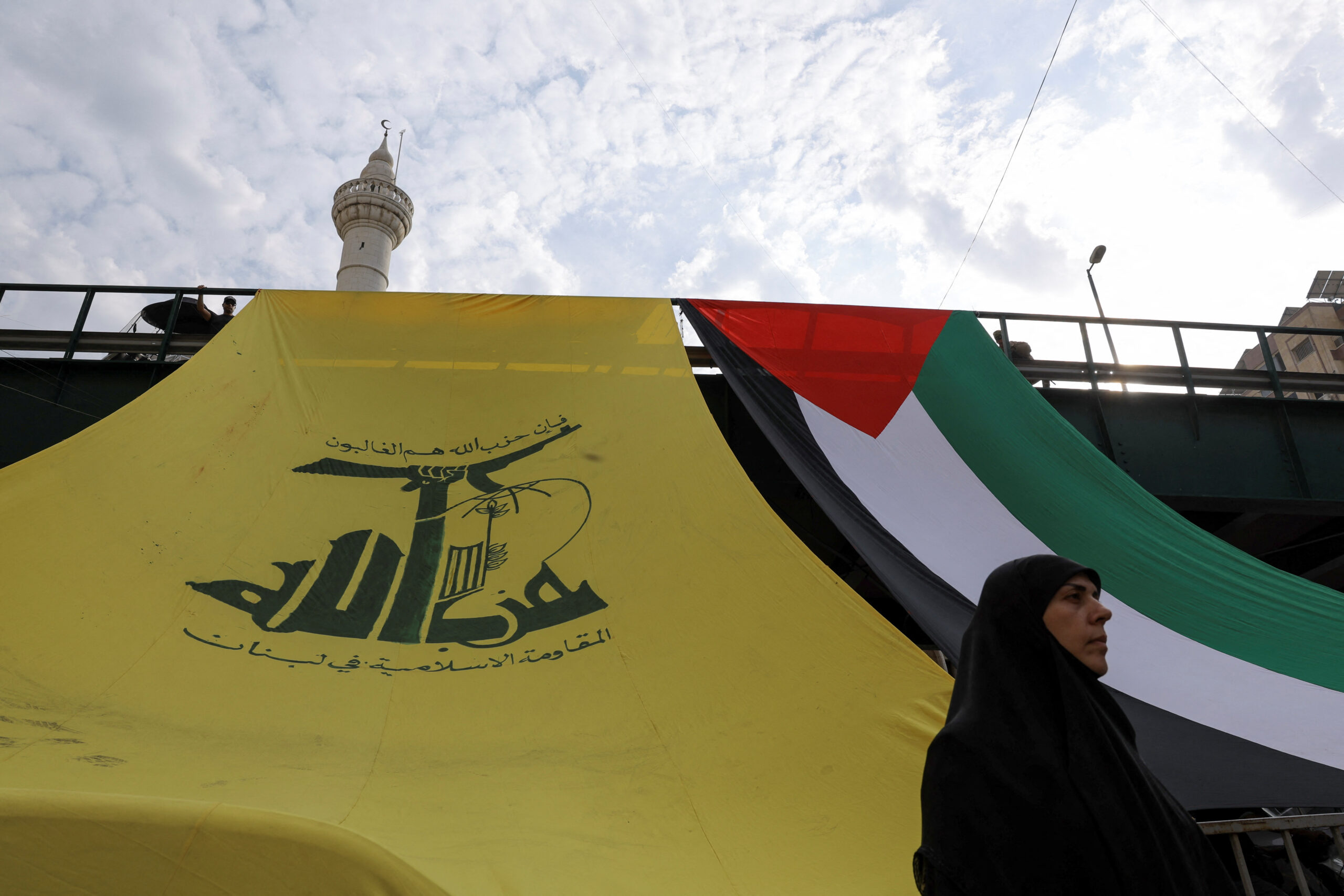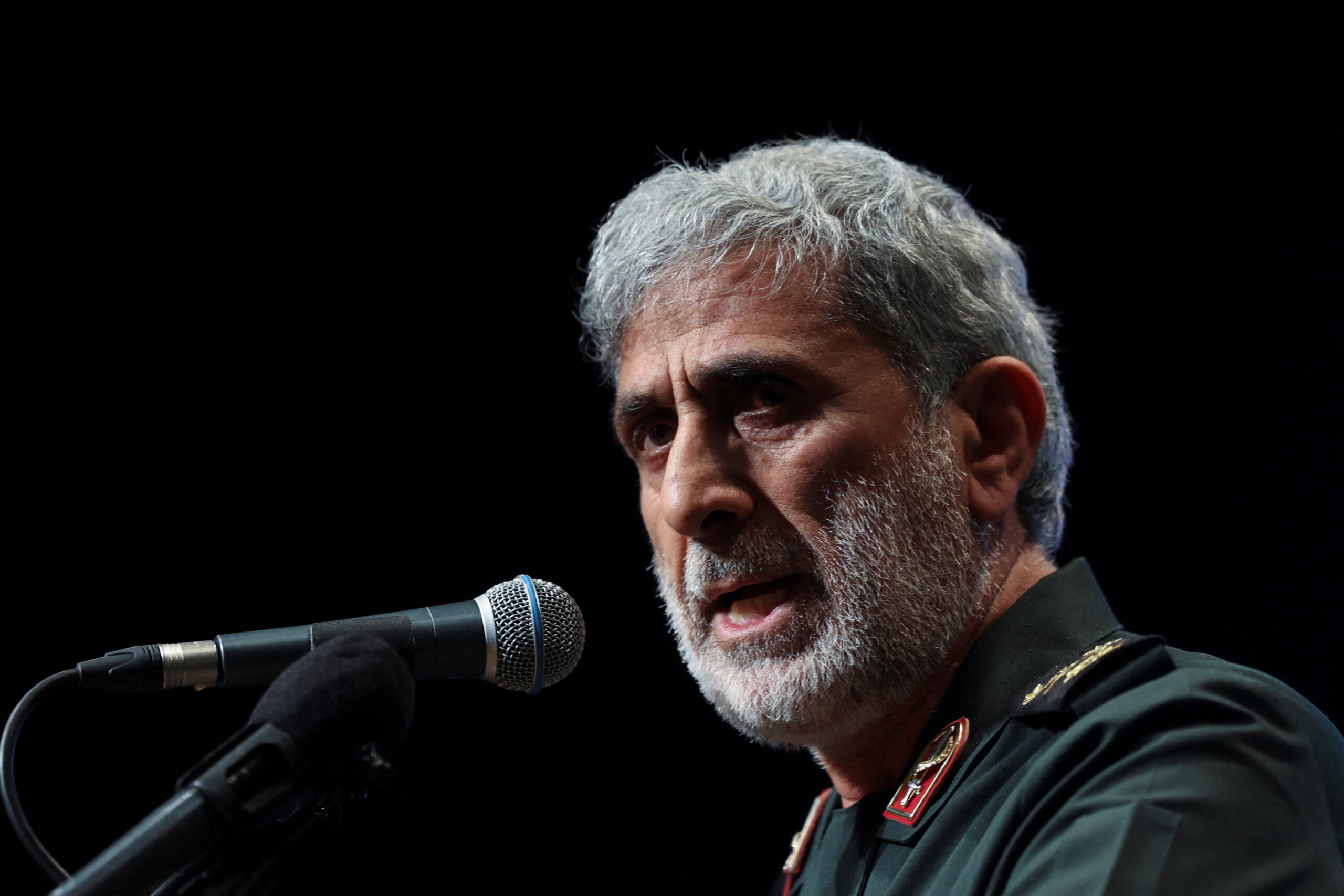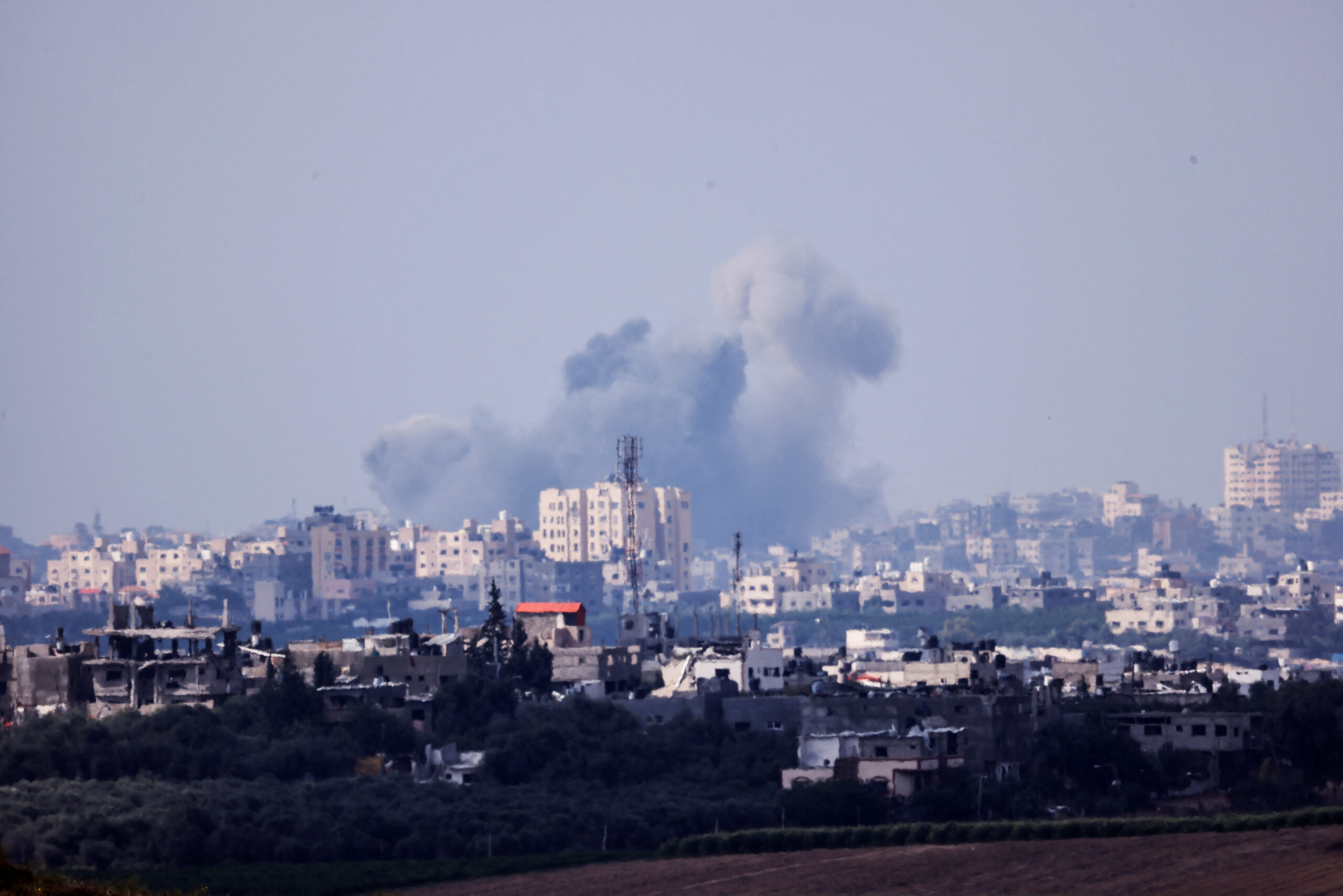Is Quds Force Chief Qaani Likely to Open a Hezbollah Front Against Israel?
While there are ways Hezbollah could become involved in the Israel-Hamas conflict, neither Hezbollah nor Iran appears interested in a wider regional war.

As Israel and Lebanese Hezbollah continue to exchange fire, there is fear of the Israel-Hamas conflict in Gaza spreading to Lebanon and perhaps escalating to a wider regional war. However, barring unpredictable catastrophic incidents, for the time being, the risk of a regional war is low due to one important reason: Iran, Hezbollah’s principal patron, has other designs for its proxy and does not appear interested in opening a northern front against Israel.
Iran has three main reasons not to bring Hezbollah into a wider war with Israel.
First, Iran achieved all its objectives in the Israel-Hamas conflict almost immediately after it broke out October 7. A possible agreement between Saudi Arabia and Israel to normalize diplomatic relations, which Iran opposes, is indefinitely postponed. Iran’s military and security services have suffered many a humiliation at the hands of the Mossad. As a longtime supporter of Hamas, Iran is happy to take partial credit, from a distance and with deniability, for getting back at Israel with a surprise attack on Israeli territory on a scale not seen since the October 1973 war. And, most important, Hamas’ incursion into Israel shattered the myth of the invulnerability of the Jewish state, whose Iron Dome and concrete walls helped it abandon the idea of peace with the Palestinians as a precondition for normalizing diplomatic relations with its Arab neighbors.
Second, had Iran wanted to involve Hezbollah in the conflict, it likely would have done so from the onset. Iran must have had its reasons not to take advantage of the element of surprise to entangle Israel in a two-front war involving Hamas and Hezbollah from the beginning.
Third, Hezbollah appears to primarily serve Iran, and the Islamic Revolutionary Guard Corps Quds Force, as a deterrent against a potential Israeli attack against its nuclear infrastructure. The Iranian leadership’s analysis of the 2006 Hezbollah-Israel war, a blunder provoked by Hezbollah leader Hassan Nasrallah’s decision in July 2006 to order the abduction of Israeli soldiers without prior consultation with Tehran, provides valuable insights into the Iranian leadership’s strategic calculus.
In a retrospective, three-hour interview in October 2019, Major General Qassim Suleimani, then chief of the Quds Force, disclosed that he rushed to Beirut to contain the situation and soon returned to Tehran to report to Supreme Leader Ayatollah Ali Khamenei, the speaker of the parliament, the head of the judiciary, the president of the republic, and other members of Iran’s Supreme National Security Council. “I delivered a bitter report. What I had witnessed did not show a victorious horizon,” Suleimani recalled. Recounting Khamenei’s response, Suleimani continued: “His Lordship said: ‘I believe that Israel had prepared for war and wanted to execute the plan in a surprise attack annihilating Hezbollah. However, Hezbollah’s kidnapping of the two soldiers neutralized Israel’s element of surprise.’” Khamenei also instructed Suleimani to convey a personal message to Nasrallah, whom Suleimani found badly shaken in Beirut. Suleimani noted, “The number of martyrs increased and so did the scope of the destruction,” and Nasrallah “used words and expressions of despair, which saddened me. I have no desire to recount those words.”
Suleimani added that Khamenei’s “narrative,” or spin, on the origins of the war was helpful should “someone criticize Nasrallah and complain that Hezbollah exposed the entire Shia community to danger for the sake of taking a couple of prisoners. The narrative that Hezbollah, by taking two prisoners, prevented the total annihilation not only of Hezbollah but also of the Lebanese nation was reassuring” and expedient for Nasrallah
Nasrallah issued an unprecedented public apology in August 2006 for his poor judgment in ordering the raid that caused the war. But in a May 11, 2012 speech accusing Israel and the United States of fomenting terrorism in Syria, the boastful Hezbollah leader threatened to annihilate Israel. Four days later, Botia News, a now defunct Iranian outlet, released a near-transcript quality report on Suleimani’s phone conversation with Nasrallah. Suleimani, whose focus at the time was supporting the regime of Syrian President Bashar al-Assad in the civil war, reportedly warned Nasrallah against “any preemptive strike against the Zionist regime.” According to the report, Suleimani also referenced the 2006 war and warned Nasrallah: “Hezbollah’s victory in the 33-day war was not because of the power of the weapons but because of the power of faith and divine help.” Sticking with the theme of faithfulness, Suleimani also referred to Khamenei’s March 21, 2012 new year address, in which Iran’s supreme leader said: “God guarantees the victory of the believers when we are defenders. If we start a war, the Quran does not guarantee our victory.” Suleimani clearly perceived Hezbollah’s missile arsenal as a deterrent against a potential Israeli strike on Iran’s nuclear facilities, not a tool for a preemptive attack against Israel.
To judge by public reports, Brigadier General Ismail Qaani, Suleimani’s successor as Quds Force chief, sees the role of Lebanese Hezbollah similarly. During his December 1, 2020 visit to Beirut, Qaani reportedly instructed Hezbollah’s leadership to “avoid provoking Israel” following the assassination of an Iranian nuclear scientist believed to have been orchestrated by Israel. During his April visit to Beirut, he reportedly coordinated the April 6 missile attack against Israeli targets but limited it below the threshold of what could provoke a war with Israel. And as for Hamas’ October 7 attack, Qaani’s apparent perception of Hamas as an expendable pawn in the grand chess game is very different than his view of Hezbollah as a valued strategic asset.
Could Hezbollah become involved in the Israel-Hamas conflict? Of course, but neither Hezbollah nor Iran – nor, for that matter, Israel or the United States – appears interested in a wider regional war.
The views represented herein are the author's or speaker's own and do not necessarily reflect the views of AGSI, its staff, or its board of directors.



















